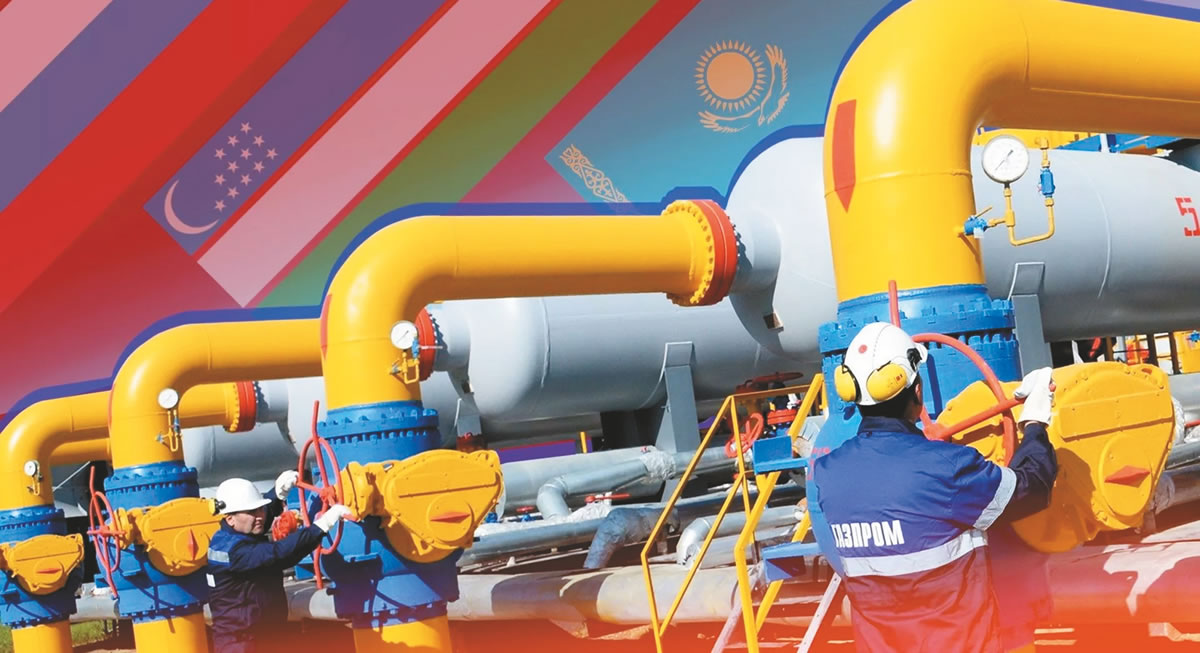Projects
Uzbekistan Considers Gas Hub Project for China, India, and Pakistan
The commencement of Russian gas deliveries to Uzbekistan via Kazakhstan in early October marked a major headline of 2023 in the global energy market. Industry experts are noting the significant potential of this collaboration, eyeing the possible expansion of transit routes not just to China, but also to India and Pakistan through the TAPI pipeline. In this setup, Uzbekistan stands to not only earn revenue from the transit of Russian gas but also to establish itself as a fully-fledged gas hub, thereby enhancing its potential.

According to Bahodir Ergashev, Director of the Tashkent-based Center for Research Initiatives Ma'no, in an interview with Podrobno.uz, Uzbekistan will need to increase its gas purchases, not just from Russia but also from Turkmenistan, to meet the demands of its own population and economy. Ergashev emphasizes the importance of Uzbekistan formulating a policy based on its own interests rather than being influenced by other states.
"Since the 1960s, Uzbekistan, through the 'Central Asia - Center' and 'Central Asia - Ural' pipeline systems, has been a major supplier of natural gas to the Russian Federation. Now, we are witnessing the formation of a new configuration in gas cooperation: Uzbekistan and Kazakhstan are becoming recipients of Russian gas, which will now flow in reverse mode from Russia to Central Asia through pipeline systems established in the 1960s and 1970s," Ergashev noted.
The expert added that in early November, the country's Energy Minister Jurabek Mirzamakhmudov and Gazprom's Chairman Alexey Miller signed a strategic memorandum on Uzbek-Russian cooperation in the energy sector. This indicates that the partnership is long-term and strategic in nature (See " The Pivot of Gas Lines. Petroleum No.5-2023").
"There are several aspects to this cooperation. First, Uzbekistan becomes a recipient of Russian natural gas. For the next two years, we are talking about annual deliveries of 2.8 bln cubic meters of this 'blue fuel.' This is necessary to meet the increasing demands during the autumn-winter heating season," the interviewee emphasized.
Ergashev believes that the figure of 2.8 bln cubic meters is just the beginning. Uzbekistan will have to increase these purchases in the future, not only from Russia but also from Turkmenistan. Currently, there are only two real suppliers of natural gas to the country: Moscow and Ashgabat, with no other options, says the expert. Imports are indispensable given the growing needs of the economy and industry, as well as the continual increase in population.
"The second aspect worth discussing is Uzbekistan's potential to become a hub for the transit of Russian gas. Uzbekistan is still paying off the construction of the 'Turkmenistan-Uzbekistan-Kazakhstan-Kyrgyzstan-China' pipeline, also known as 'Central Asia-China'. Currently, three branches of this pipeline have been constructed. Turkmenistan pumps approximately 35 bln cubic meters of natural gas through this pipeline. Kazakhstan and Uzbekistan also use it to supply about 5 to 10 bln cubic meters of gas annually to China," the expert explained.
He mentioned that both Kazakhstan and Uzbekistan face a natural gas deficit, particularly noticeable during the winter heating season. Hence, both countries are interested in keeping their gas for domestic use, but they are currently obligated to export it to their Chinese partners.
"Gazprom could fulfill China's gas needs with its supplies, allowing Uzbekistan and Kazakhstan the opportunity to send Russian gas through this pipeline to China, keeping their gas for domestic needs. This is one of the options that could and should be discussed. If the transit of Russian gas to China through the 'Central Asia-China' pipeline is established, it would have a significant positive impact on Kazakhstan and Uzbekistan, who would earn transit fees," the interviewee is confident.
Therefore, he added, creating a hub could be the next step in gas cooperation between Russia and Uzbekistan. However, Ergashev considers the idea of pumping Russian gas from Uzbekistan to Turkmenistan and then to China as unfeasible. "There's no need to route gas through Turkmenistan to China. Uzbekistan has its own entry points into the pipeline supplying Uzbek gas to China. Therefore, if a portion of the gas comes to Uzbekistan in transit and continues to China through this pipeline, Turkmenistan is not needed. However, a scenario where Russian gas is transited through Kazakhstan and Uzbekistan, possibly to Turkmenistan for onward delivery to Pakistan and India, could be discussed," he said.
The expert noted that there has been long-standing debate about building the major 'Turkmenistan-Afghanistan-Pakistan-India' (TAPI) pipeline. Discussions have involved at least 30 bln cubic meters of Turkmen natural gas potentially supplied to Pakistan and India via Afghanistan. This project, like the 'China-Kyrgyzstan-Uzbekistan' railway, has been discussed for nearly 30 years without commencement.



